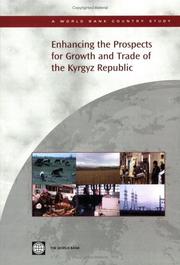| Listing 1 - 3 of 3 |
Sort by
|
Book
ISBN: 9781501708381 1501708384 150170513X 9781501705137 9781501705144 1501705148 9781501708374 1501708376 Year: 2017 Publisher: Ithaca : Cornell University Press,
Abstract | Keywords | Export | Availability | Bookmark
 Loading...
Loading...Choose an application
- Reference Manager
- EndNote
- RefWorks (Direct export to RefWorks)
How do specific secular and religious ideologies-such as nationalism, neoliberalism, atheism, Pentecostalism, Tablighi Islam, and shamanism-gain popularity and when do they lose traction? To answer these questions, Mathijs Pelkmans critically examines the trajectories of a range of ideologies as they move into the post-Soviet frontier in Central Asia. Ethnographically rooted in the everyday life of a former mining town in southern Kyrgyzstan, Fragile Conviction shows how residents have dealt with the existential and epistemic crises that arose after the collapse of the Soviet Empire. Residents became enchanted by the truths of Muslim and Christian missionaries, embraced the teachings of neoliberal and nationalist ideologues, and were riveted by the visions of shamanic healers. But no matter how much enthusiasm and hope these ideas first engendered, the commitment to any of them rarely lasted very long.Pelkmans finds that there is an inverse relationship between the tenacity and the effervescence of collective ideas, between their strength to persist and their ability to trigger committed action. Introducing the concept of pulsation, he argues in Fragile Conviction that ideational power must be understood in relation to three aspects: the voicing of the idea, its tension with everyday reality, and its reverberation within groups of listeners. The conclusion that the power of conviction is rooted in the instability of sociocultural contexts is a message that has relevance far beyond urban Central Asia.
Kyrgyzstan --- Kirghizia --- Kyrgyz Republic --- Kyrgyz Respublikasy --- Kyrgyzstan Respublikasy --- Respublika Kyrgyzstan --- Republic of Kyrgyzstan --- Kyrghyzstan --- Kirgisien --- Kirgizstan --- Kirgizistan --- Jierjisi gong he guo --- Qīrghīzistān --- Qirqīzistān --- Jumhūrī-i Qirqīzistān --- Ideology --- Post-communism --- Intellectual life. --- Religious life. --- Politics and government --- Postcommunism --- World politics --- Communism --- Knowledge, Theory of --- Philosophy --- Political science --- Psychology --- Thought and thinking --- Кыргыз Республикасы --- Qırğız Respublikası --- Кыргызская Республика --- Kyrgyzskai︠a︡ Respublika --- Kyrgyzskaya Respublika --- Qirghiz Respublikasi --- Кыргызстан --- Qırğızstan --- Киргизия --- Kirgizii︠a︡ --- Kirgiziya --- キルギス --- Kirugisu --- クルグズスタン --- Kuruguzusutan --- クルグズ --- Kuruguzu --- キルギスタン --- Kirugisutan --- Kirgisia --- Kirgisistan --- Kirghiz S.S.R. --- Intellectual life

ISBN: 0821363565 0821363573 9786610238248 1280238240 Year: 2005 Publisher: Washington, DC : World Bank,
Abstract | Keywords | Export | Availability | Bookmark
 Loading...
Loading...Choose an application
- Reference Manager
- EndNote
- RefWorks (Direct export to RefWorks)
The Kyrgyz Republic has made major strides in the past decade in its transition to a market-based economy. Its trade and investment policies are arguably the most liberal among the member countries of the Commonwealth of Independent States. Despite the generally progressive stance on structural policies and a sound record of macroeconomic management in recent years, economic growth has been modest, living standards are low, a large burden of external debt has accumulated, and integration into global production and trade remains limited. The growth agenda must address more carefully the constra
Economic infrastructure --- Kyrgyzstan --- Economics. --- Economic conditions --- Commercial policy. --- Economic theory --- Political economy --- Social sciences --- Economic man --- Jierjisi gong he guo --- Jumhūrī-i Qirqīzistān --- Kirghizia --- Kirgisia --- Kirgisien --- Kirgisistan --- Kirgizii︠a︡ --- Kirgizistan --- Kirgiziya --- Kirgizstan --- Kirugisu --- Kirugisutan --- Kuruguzu --- Kuruguzusutan --- Kyrghyzstan --- Kyrgyz Republic --- Kyrgyz Respublikasy --- Kyrgyzskai︠a︡ Respublika --- Kyrgyzskaya Respublika --- Kyrgyzstan Respublikasy --- Qirghiz Respublikasi --- Qīrghīzistān --- Qırğız Respublikası --- Qırğızstan --- Qirqīzistān --- Republic of Kyrgyzstan --- Respublika Kyrgyzstan --- Кыргыз Республикасы --- Кыргызстан --- Кыргызская Республика --- Киргизия --- キルギス --- キルギスタン --- クルグズ --- クルグズスタン --- Kirghiz S.S.R.
Book
ISBN: 1529220025 1529220009 Year: 2022 Publisher: Bristol Bristol University Press
Abstract | Keywords | Export | Availability | Bookmark
 Loading...
Loading...Choose an application
- Reference Manager
- EndNote
- RefWorks (Direct export to RefWorks)
EPDF and EPUB available Open Access under CC-BY-NC-ND licence.Drawing on decolonial perspectives on peace, statehood and development, this illuminating book examines post-liberal statebuilding in Central Asia. It uses ethnographic fieldwork in Southern Kyrgyzstan to offer a detailed examination of community security and peacebuilding discourses and practices. Through its analysis, the book highlights the problem with assumptions about liberal democracy, modern statehood and capitalist development as the standard template for post-conflict countries, which is widespread and rarely reflected upon.
Reconstruction d'une nation. --- Nation-building. --- Kirghizistan --- Kyrgyzstan --- Politique et gouvernement --- Social conditions. --- Politics and government --- Stabilization and reconstruction (International relations) --- State-building --- Political development --- Jierjisi gong he guo --- Jumhūrī-i Qirqīzistān --- Kirghizia --- Kirgisia --- Kirgisien --- Kirgisistan --- Kirgizii︠a︡ --- Kirgizistan --- Kirgiziya --- Kirgizstan --- Kirugisu --- Kirugisutan --- Kuruguzu --- Kuruguzusutan --- Kyrghyzstan --- Kyrgyz Republic --- Kyrgyz Respublikasy --- Kyrgyzskai︠a︡ Respublika --- Kyrgyzskaya Respublika --- Kyrgyzstan Respublikasy --- Qirghiz Respublikasi --- Qīrghīzistān --- Qırğız Respublikası --- Qırğızstan --- Qirqīzistān --- Republic of Kyrgyzstan --- Respublika Kyrgyzstan --- Кыргыз Республикасы --- Кыргызстан --- Кыргызская Республика --- Киргизия --- キルギス --- キルギスタン --- クルグズ --- クルグズスタン --- Kirghiz S.S.R. --- Authoritarian; Central Asia; Conflict management; Hybrid peace; Illiberal; Kyrgyzstan; Liberal democracy; Modern statehood; post-conflict; Social ordering; Sovereignty; statebuilding --- Since 1991
| Listing 1 - 3 of 3 |
Sort by
|

 Search
Search Feedback
Feedback About UniCat
About UniCat  Help
Help News
News